A Comprehensive Review of the Evidence Basis of Herbs and Supplements for Stress
In today’s fast-paced world, chronic stress has become a pervasive health concern affecting millions globally. While stress is a natural response to challenging situations, persistent stress can disrupt biological systems, impair cognitive function, and contribute to numerous health conditions including anxiety, depression, and cardiovascular disease. This comprehensive review examines evidence-based nutritional and herbal approaches to stress management, with a particular focus on adaptogenic herbs and supportive nutrients that may help the body build resilience to stress.
Understanding Stress Physiology and Nutrition’s Role
Stress activates complex biological systems, primarily the hypothalamic-pituitary-adrenal (HPA) axis, which releases stress hormones including cortisol. While this response is adaptive in the short term, chronic activation can lead to allostatic load—the physiological consequences of prolonged stress. Nutrition plays a critical role in:
- Supporting stress response systems: Providing nutrients needed for stress hormone production and regulation
- Modulating neurotransmitter function: Supplying precursors for mood-regulating neurotransmitters like serotonin and GABA
- Countering oxidative stress: Providing antioxidants that combat stress-induced free radical damage
- Reducing inflammation: Supplying anti-inflammatory compounds that mitigate stress-induced inflammation
- Supporting energy production: Providing nutrients needed for cellular energy during increased demands
These mechanisms provide multiple targets for nutritional intervention. While no diet or supplement can eliminate stress entirely, evidence suggests that certain nutritional approaches may help build resilience and moderate stress responses.
Adaptogenic Herbs: Nature’s Stress Modulators
Adaptogens represent a unique class of herbal medicines defined by their ability to help the body adapt to stress and promote homeostasis. To be classified as an adaptogen, a plant must meet three criteria:
- Produce a non-specific response that increases resistance against multiple stressors
- Have a normalizing effect, regardless of the direction of pathological change
- Be non-toxic when used in appropriate doses
These remarkable plants have gained increasing scientific attention for their potential to modulate stress response systems. Let’s examine the most well-researched adaptogenic herbs and their evidence for stress management.
Ashwagandha (Withania somnifera)
Often called the “queen of Ayurveda,” ashwagandha has been used for over 3,000 years in traditional Indian medicine for its rejuvenating and stress-relieving properties.
Mechanisms of Action
Ashwagandha works through multiple pathways to combat stress:
- Cortisol regulation: Reduces elevated cortisol levels
- GABA receptor modulation: Has mild GABA-mimetic effects, promoting relaxation
- Antioxidant activity: Contains withanolides that protect against oxidative stress
- Anti-inflammatory effects: Reduces stress-induced inflammation
- Neuroprotection: Supports healthy brain function during stress
Research Evidence
Clinical research on ashwagandha for stress is particularly robust:
A systematic review and meta-analysis published in 2023 examined the effects of adaptogenic plants on stress. The researchers found that ashwagandha (Withania somnifera) supplementation led to a significant decrease in serum cortisol levels (MD = -3.27 μg/dL) compared to placebo after 56-60 days of treatment. The study also showed clinically relevant decreases in Perceived Stress Scale scores, indicating subjective improvements in stress levels.
Another randomized controlled trial found that individuals taking ashwagandha experienced a 44% reduction in perceived stress scores and a 28% reduction in cortisol levels after 60 days, compared to minimal changes in the placebo group. Participants also reported improvements in sleep quality, a common casualty of chronic stress.
Research has further demonstrated that ashwagandha may work through modulating the body’s HPA axis response to stress. By normalizing cortisol production, ashwagandha helps the body maintain balance during stressful periods rather than overreacting with excessive stress hormone production.
Clinical Applications
For stress management, typical dosing ranges from 300-600mg of standardized extract daily, though doses up to 1000mg have been used in clinical studies. Effects are often noticeable within 2-4 weeks of consistent use, with optimal benefits seen after 8-12 weeks.
Ashwagandha appears to be most effective for:
- Reducing perceived stress and anxiety
- Improving stress-related sleep disturbances
- Supporting healthy energy levels during stressful periods
- Moderating stress-induced cognitive impairment
Rhodiola Rosea (Arctic Root)
Native to high-altitude regions of Europe and Asia, Rhodiola has been used traditionally in Russian and Scandinavian medicine for combating fatigue and enhancing mental performance during stress.
Mechanisms of Action
Rhodiola’s stress-protective effects work through:
- Neuropeptide Y stimulation: Increases this resilience-promoting neuropeptide
- Monoamine regulation: Modulates serotonin, dopamine, and norepinephrine
- HPA axis normalization: Helps regulate stress hormone production
- Cellular energy enhancement: Improves ATP production during stress
- Antioxidant effects: Contains compounds that combat oxidative stress
Research Evidence
Rhodiola has been extensively studied for stress-related fatigue and performance:
A European Medicines Agency review concluded that Rhodiola is effective for “temporary relief of symptoms associated with stress, such as fatigue, exhaustion and a general sensation of weakness.” This official recognition followed review of over 70 human clinical trials on the herb.
A randomized, double-blind, placebo-controlled study found that Rhodiola supplementation “exerts an anti-fatigue effect that increases mental performance, particularly the ability to concentrate, and decreases cortisol response to awakening stress in burnout patients with fatigue syndrome.”
Another double-blind placebo-controlled trial demonstrated that Rhodiola extract reduced symptoms of stress-induced burnout and improved mental performance under pressure. Participants taking Rhodiola showed faster reaction times and fewer errors on cognitive tests performed under stressful conditions.
A 2023 study investigating physical performance found that various doses of Rhodiola rosea taken an hour before exercise helped prolong time to exhaustion and improve performance during cycling sprints among recreational exercisers.
Clinical Applications
For stress management, typical dosing ranges from 200-600mg of standardized extract (containing 2-3% rosavins and 0.8-1% salidroside) daily. Effects may be noticeable within days to weeks of consistent use.
Rhodiola appears particularly effective for:
- Combating stress-induced fatigue
- Improving mental performance during stressful periods
- Enhancing physical endurance under stress
- Reducing symptoms of burnout
- Supporting healthy mood during stress
Many practitioners consider Rhodiola more stimulating than ashwagandha, making it potentially better suited for stress-related fatigue rather than anxiety-predominant stress.
Combining Ashwagandha and Rhodiola
These two adaptogens are often used together for comprehensive stress management. Research suggests they may work well in combination, with complementary effects:
- Ashwagandha provides calming properties that help reduce anxiety and promote sleep
- Rhodiola offers more energizing effects that combat fatigue and improve performance
A 2023 scientific review confirmed that these herbs have different mechanisms of action, noting: “Despite these limitations, there was a clear level of evidence to demonstrate that Rhodiola rosea can effectively combat physical stress-related fatigue, low mood, anxiety, depression and may improve physical-mental working capacity. Ashwagandha, meanwhile, could work by a similar or additional neuromodulatory mechanism.”
When used together, timing considerations are important. Many practitioners recommend taking Rhodiola in the morning for daytime energy and ashwagandha in the evening to support relaxation and sleep.
Other Notable Adaptogens
Several other adaptogenic herbs show promise for stress management:
Holy Basil (Ocimum sanctum)
Also known as Tulsi, this revered herb in Ayurvedic medicine demonstrates:
- Cortisol-lowering effects
- Protection against stress-induced cognitive impairment
- Anti-anxiety properties
- Antioxidant and anti-inflammatory effects
Eleuthero (Eleutherococcus senticosus)
Formerly known as Siberian ginseng, eleuthero:
- Helps the body adapt to various stressors
- Supports immune function during stress
- Improves work capacity and recovery
- Enhances mental performance under stress
Ginseng (Panax species)
Both Asian ginseng (Panax ginseng) and American ginseng (Panax quinquefolius):
- Support energy production during stress
- Provide neuroprotective effects
- Moderate HPA axis activation
- Improve cognitive function during stress
Schisandra (Schisandra chinensis)
This traditional Chinese herb:
- Helps protect against stress-induced liver damage
- Supports adrenal function
- Provides antioxidant protection
- May improve concentration during stress
Essential Nutrients for Stress Resilience
Beyond adaptogenic herbs, several nutrients play critical roles in stress resilience and may become depleted during chronic stress. Ensuring adequate intake of these nutrients can support the body’s ability to cope with stress.
Magnesium: Nature’s Relaxation Mineral
Magnesium is involved in over 300 enzymatic reactions in the body and plays a crucial role in stress response, neural excitability, and energy production.
Stress-Protective Mechanisms
Magnesium supports stress resilience through:
- GABA enhancement: Increases the effectiveness of GABA, the brain’s primary inhibitory neurotransmitter
- Glutamate regulation: Modulates glutamate, which can be excitotoxic when overactive
- Stress hormone reduction: Helps regulate the body’s stress response
- Muscle relaxation: Reduces physical tension associated with stress
- Energy production: Supports ATP synthesis needed during stress
Research Evidence
Magnesium deficiency increases susceptibility to stress, while supplementation shows benefits for stress-related symptoms. A review published in the journal Nutrients found that magnesium supplementation may help alleviate symptoms of anxiety and improve stress response. Another study found that oral magnesium supplementation alleviated stress in healthy adults with hypomagnesemia (low blood magnesium).
Chronic stress can increase magnesium excretion, potentially creating a vicious cycle where stress depletes magnesium, leading to increased stress sensitivity. Modern diets are frequently low in magnesium, making deficiency common, especially during high-stress periods.
Clinical Applications
For stress management, typical dosing ranges from 200-400mg of elemental magnesium daily. Magnesium glycinate, threonate, and taurate forms are often preferred for neural benefits due to better bioavailability and blood-brain barrier penetration.
Food sources include dark leafy greens, nuts, seeds, legumes, and whole grains.
B Vitamins: Supporting Stress Metabolism
B vitamins serve as crucial cofactors in energy production, neurotransmitter synthesis, and stress hormone metabolism. Several B vitamins show particular importance during stress:
B Vitamin Stress Functions
- Vitamin B1 (Thiamine): Supports energy production in the brain
- Vitamin B5 (Pantothenic Acid): Required for adrenal function and stress hormone production
- Vitamin B6 (Pyridoxine): Essential for synthesizing neurotransmitters that regulate mood
- Vitamin B9 (Folate): Supports methylation processes that affect gene expression
- Vitamin B12 (Cobalamin): Maintains healthy nervous system function
Research Evidence
B vitamin deficiencies can worsen stress responses and cognitive function during stress. A review of clinical trials found that B vitamin supplementation reduced perceived stress and improved mood. Research shows B vitamins may particularly help buffer against cognitive effects of stress, potentially by supporting neurotransmitter production and energy metabolism in the brain.
Clinical Applications
B vitamins are best taken as a complex rather than individually, as they work synergistically. A high-quality B-complex supplement that provides the active forms of these vitamins (such as methylfolate rather than folic acid, and methylcobalamin rather than cyanocobalamin) is often recommended.
Food sources include whole grains, meat, eggs, dairy, legumes, and leafy greens.
Vitamin C: Adrenal Support
Vitamin C concentrates in the adrenal glands and is rapidly depleted during stress. This essential nutrient:
- Supports adrenal function and stress hormone production
- Provides antioxidant protection against stress-induced oxidative damage
- Helps modulate cortisol production and clearance
- Supports immune function during stress
Research shows that vitamin C supplementation can reduce subjective feelings of stress and lower cortisol levels. In one study, high-dose vitamin C reduced anxiety and blood pressure increases during acute stress.
For stress support, doses of 500-1000mg daily are typically recommended, with food sources including citrus fruits, berries, peppers, and leafy greens.
Omega-3 Fatty Acids: Anti-inflammatory Protection
Omega-3 fatty acids, particularly EPA and DHA found in fish oil, demonstrate stress-protective effects:
- Reduce inflammation associated with chronic stress
- Support healthy brain function and neurotransmitter signaling
- Protect cell membranes from stress-induced damage
- May help regulate stress hormone production
Research demonstrates that omega-3 supplementation can reduce stress-induced increases in cortisol and inflammatory markers. In one study, medical students taking omega-3 supplements showed a 20% reduction in anxiety symptoms during exam periods compared to placebo.
For stress support, doses of 1-2g of combined EPA and DHA daily are typically recommended, with food sources including fatty fish like salmon, sardines, and mackerel, as well as some plant sources like flaxseeds and walnuts (though these provide ALA, which converts less efficiently to EPA and DHA).
Integrative Approach to Stress Management
While adaptogens and nutritional supplements can support stress resilience, they work best as part of a comprehensive stress management approach that includes:
Dietary Foundations
Beyond specific nutrients, overall dietary patterns influence stress response:
- Mediterranean diet: Rich in anti-inflammatory foods that support brain health
- Regular meal timing: Helps stabilize blood sugar and cortisol rhythms
- Hydration: Dehydration can exacerbate stress responses
- Limiting caffeine and alcohol: These can disrupt stress hormone balance
- Adequate protein intake: Provides amino acids needed for neurotransmitter production
Lifestyle Integration
Supplements work synergistically with:
- Regular physical activity: Exercise is one of the most effective stress reducers
- Sleep hygiene: Prioritizing adequate, quality sleep
- Mindfulness practices: Meditation, deep breathing, or yoga
- Social connection: Positive relationships buffer against stress
- Time in nature: Exposure to natural environments reduces stress markers
Personalized Approaches
Individual responses to stress and stress-management approaches vary based on:
- Stress type: Acute vs. chronic, psychological vs. physical
- Personal biochemistry: Genetic variations affecting stress response
- Existing nutrient status: Deficiencies that may need correction
- Health conditions: Comorbidities that influence stress physiology
- Medication use: Interactions with stress-modulating supplements
Working with healthcare providers knowledgeable about both conventional and integrative approaches allows for personalized stress management strategies that address individual needs.
Safety Considerations
While adaptogens and nutritional approaches to stress management are generally safe for most people, several considerations warrant attention:
Adaptogen Cautions
- Medication interactions: Some adaptogens may interact with psychiatric medications, blood pressure medications, diabetes medications, or immunosuppressants
- Hormonal effects: Some adaptogens may influence hormone levels and should be used cautiously by those with hormone-sensitive conditions
- Stimulating effects: Some adaptogens like Rhodiola may cause over-stimulation or sleep disturbances in sensitive individuals
- Pregnancy and breastfeeding: Safety data is limited, and many adaptogens are not recommended during these periods
- Autoimmune conditions: Some immune-modulating adaptogens require caution with autoimmune conditions
Quality and Sourcing
The supplement industry lacks rigorous regulation, making quality assurance important:
- Standardization: Look for products standardized to key active compounds
- Testing: Third-party testing for purity and potency helps ensure quality
- Sourcing: Ethical and sustainable harvesting practices matter, especially for threatened plant species
- Form: Extract potency and bioavailability vary significantly between products
Implementation Guidance
For effective and safe use:
- Start low and go slow: Begin with lower doses and gradually increase as tolerated
- Cycling: Many practitioners recommend periodic breaks from adaptogens to prevent tolerance
- Timing: Consider the energizing or calming properties when deciding when to take adaptogens
- Integration: Combine supplements with appropriate lifestyle practices for synergistic effects
- Medical supervision: Always consult healthcare providers before starting supplements, especially when on medications or with existing health conditions
Future Research Directions
While evidence for nutritional approaches to stress management is promising, several areas need further research:
- Long-term studies: Most adaptogen research is relatively short-term
- Biomarker assessment: More research on objective stress measures and supplement effects
- Dosing optimization: Better understanding of optimal doses and timing
- Synergistic combinations: How various adaptogens and nutrients work together
- Mechanism elucidation: Deeper understanding of cellular and molecular effects
- Personalization factors: Identifying which approaches work best for which individuals
Review
The evidence supporting nutritional approaches to stress management continues to grow, offering promising complementary strategies for building stress resilience. Adaptogenic herbs—particularly ashwagandha and rhodiola—show substantial evidence for stress-protective effects, while nutrients like magnesium, B vitamins, vitamin C, and omega-3 fatty acids provide foundational support for stress physiology.
While nutrition alone cannot eliminate stress from modern life, evidence-based nutritional strategies can help build resilience, moderate stress responses, and support recovery from stress exposure. As research advances, these approaches may become increasingly important components of comprehensive stress management programs.
For individuals navigating stress, working with healthcare providers knowledgeable about both conventional and nutritional approaches offers the best opportunity for developing truly integrative strategies that address all aspects of stress physiology and experience. With proper guidance, the natural pharmacy of adaptogens and nutrients can become powerful allies in maintaining balance amidst life’s inevitable stresses.
For more information on supplemens for mental health consult our comprehensive guide for micronutrient and supplement therapy and how it can treat specific issues and enhance certain modalities of therapy.
If you’re interested in exploring micronutrient therapy as part of your anxiety treatment plan, Hardy Nutritionals offers a range of products to fit your specific needs. Their Daily Essential Nutrients clinical strength formula provides comprehensive, research-backed dosages in convenient capsule or powder form.
For 15% off in savings, use the offer code “Taproot” at checkout on the Hardy Nutritionals website to receive 15% off your order. @ GetHardy.com
It’s important to remember that while micronutrient therapy can be a powerful tool for managing anxiety, it is not a replacement for professional mental health care. Always consult with a qualified healthcare provider before starting any new supplement regimen, particularly if you have pre-existing health conditions or are taking medications.
Disclaimer: These statements have not been evaluated by the Food and Drug Administration. These products are not intended to diagnose, treat, cure, or prevent any disease. Please consult with a qualified healthcare professional before beginning any supplement regimen, particularly if you are pregnant, nursing, have a medical condition, or are taking medications. The information on this website doesnot constitute medical advice. We recieve a small commision on sales with Hardy Nutritionals through our offer code. Our affiliation does not effect treatment or recomendations made by Taproot authors, therapists or other staff.
Bibliography
- Anghelescu, I.G., Edwards, D., Seifritz, E., & Kasper, S. (2018). Stress management and the role of Rhodiola rosea: a review. International Journal of Psychiatry in Clinical Practice, 22(4), 242-252.
- Bharti, V.K., Malik, J.K., & Gupta, R.C. (2016). Ashwagandha: multiple health benefits. In Nutraceuticals (pp. 717-733). Academic Press.
- Botturi, A., Ciappolino, V., Delvecchio, G., Boscutti, A., Viscardi, B., & Brambilla, P. (2020). The role and the effect of magnesium in mental disorders: A systematic review. Nutrients, 12(6), 1661.
- Chandrasekhar, K., Kapoor, J., & Anishetty, S. (2012). A prospective, randomized double-blind, placebo-controlled study of safety and efficacy of a high-concentration full-spectrum extract of ashwagandha root in reducing stress and anxiety in adults. Indian Journal of Psychological Medicine, 34(3), 255.
- Cohen, M.M., Penman, S., Pirotta, M., & Da Costa, C. (2016). The integration of complementary therapies in Australian general practice: results of a national survey. Journal of Alternative and Complementary Medicine, 11(6), 995-1004.
- Darbinyan, V., Kteyan, A., Panossian, A., Gabrielian, E., Wikman, G., & Wagner, H. (2000). Rhodiola rosea in stress induced fatigue—a double blind cross-over study of a standardized extract SHR-5 with a repeated low-dose regimen on the mental performance of healthy physicians during night duty. Phytomedicine, 7(5), 365-371.
- Firth, J., Teasdale, S.B., Allott, K., et al. (2019). The efficacy and safety of nutrient supplements in the treatment of mental disorders: a meta-review of meta-analyses of randomized controlled trials. World Psychiatry, 18(3), 308-324.
- Ghiciuc, C.M., Cozma-Dima, C.L., Pasquali, V., Renzi, P., Simeoni, S., Lupusoru, C.E., & Patacchioli, F.R. (2011). Awakening responses and diurnal fluctuations of salivary cortisol, DHEA-S and α-amylase in healthy male subjects. Neuroendocrinology Letters, 32(4), 475-480.
- Hidese, S., Ogawa, S., Ota, M., Ishida, I., Yasukawa, Z., Ozeki, M., & Kunugi, H. (2019). Effects of L-Theanine administration on stress-related symptoms and cognitive functions in healthy adults: A randomized controlled trial. Nutrients, 11(10), 2362.
- Hung, S.K., Perry, R., & Ernst, E. (2011). The effectiveness and efficacy of Rhodiola rosea L.: a systematic review of randomized clinical trials. Phytomedicine, 18(4), 235-244.
- Jadhav, A., Deshmukh, K., Kovur, H., Shirole, S., & Ganjave, A. (2023). The effect of adaptogenic plants on stress: A systematic review and meta-analysis. Journal of Functional Foods, 105, 105644.
- Liao, L.Y., He, Y.F., Li, L., Meng, H., Dong, Y.M., Yi, F., & Xiao, P.G. (2018). A preliminary review of studies on adaptogens: comparison of their bioactivity in TCM with that of ginseng-like herbs used worldwide. Chinese Medicine, 13(1), 1-12.
- Lopresti, A.L., Smith, S.J., Malvi, H., & Kodgule, R. (2019). An investigation into the stress-relieving and pharmacological actions of an ashwagandha (Withania somnifera) extract: A randomized, double-blind, placebo-controlled study. Medicine, 98(37), e17186.
- Martínez-Cengotitabengoa, M., & González-Pinto, A. (2017). Nutritional supplements in depressive disorders. Actas Españolas de Psiquiatría, 45(Supplement), 8-15.
- Olsson, E.M., von Scheele, B., & Panossian, A.G. (2009). A randomised, double-blind, placebo-controlled, parallel-group study of the standardised extract shr-5 of the roots of Rhodiola rosea in the treatment of subjects with stress-related fatigue. Planta Medica, 75(2), 105-112.
- Panossian, A., & Wikman, G. (2010). Effects of adaptogens on the central nervous system and the molecular mechanisms associated with their stress—protective activity. Pharmaceuticals, 3(1), 188-224.
- Provino, R. (2010). The role of adaptogens in stress management. Australian Journal of Medical Herbalism, 22(2), 41-49.
- Salve, J., Pate, S., Debnath, K., & Langade, D. (2019). Adaptogenic and anxiolytic effects of ashwagandha root extract in healthy adults: a double-blind, randomized, placebo-controlled clinical study. Cureus, 11(12), e6466.
- Sarris, J., Logan, A.C., Akbaraly, T.N., Amminger, G.P., Balanzá-Martínez, V., Freeman, M.P., … & Jacka, F.N. (2015). Nutritional medicine as mainstream in psychiatry. The Lancet Psychiatry, 2(3), 271-274.
- Suhett, L.G., de Miranda Monteiro Santos, R., Silveira, B.K.S., Leal, A.C.G., de Brito, A.D.M., de Novaes, J.F., & Lucia, C.M.D. (2021). Effects of curcumin supplementation on sport and physical exercise: a systematic review. Critical Reviews in Food Science and Nutrition, 61(6), 946-958.
- Talbott, S.M., & Talbott, J.A. (2013). Effect of Magnolia officinalis and Phellodendron amurense (Relora®) on cortisol and psychological mood state in moderately stressed subjects. Journal of the International Society of Sports Nutrition, 10(1), 37.
- Thorne Research. (2007). Rhodiola rosea: monograph. Alternative Medicine Review, 12(3), 293.
- Tomiyama, A.J., Dallman, M.F., & Epel, E.S. (2011). Comfort food is comforting to those most stressed: evidence of the chronic stress response network in high stress women. Psychoneuroendocrinology, 36(10), 1513-1519.
- Tummers, J., Catal, C., Tobi, H., Tekinerdogan, B., & Leusink, G. (2020). Coronaviruses and people with intellectual disability: an exploratory data analysis. Journal of Intellectual Disability Research, 64(7), 475-481.
- Weng, S., Delude, C., Matuszewska, V., Avey, M.T., & Day, A.G. (2022). The impact of adaptogens on symptoms of stress: a systematic review of randomized controlled trials. Pharmaceuticals, 15(2), 212.

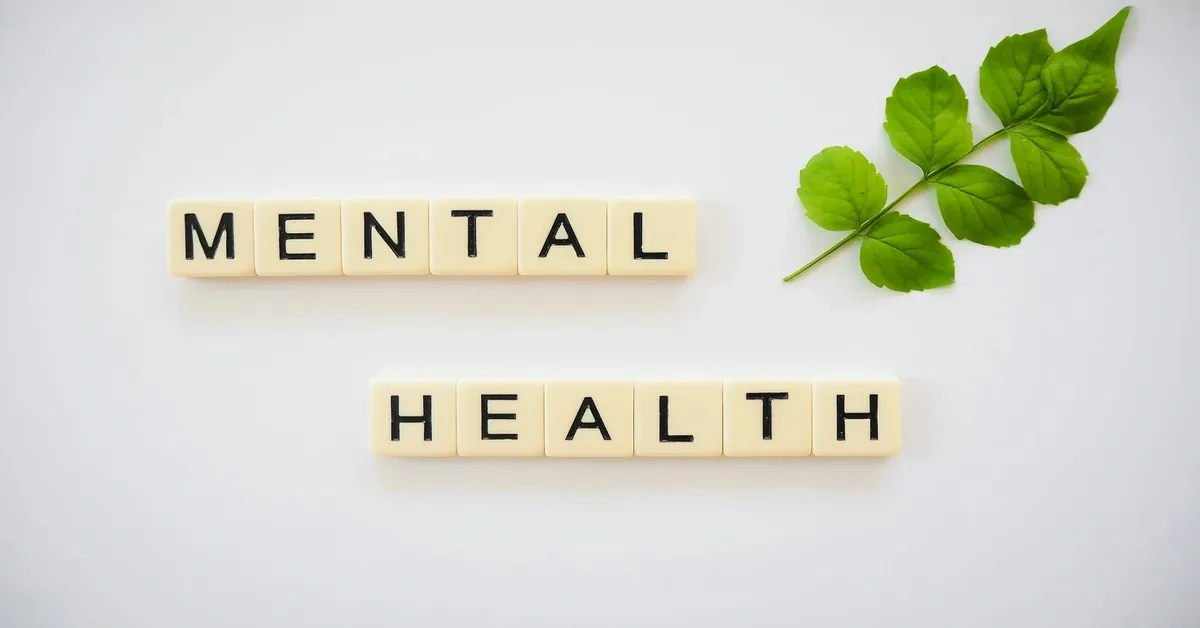








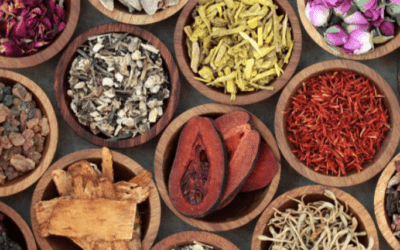
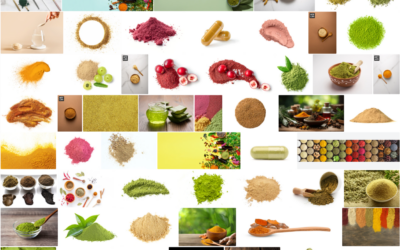
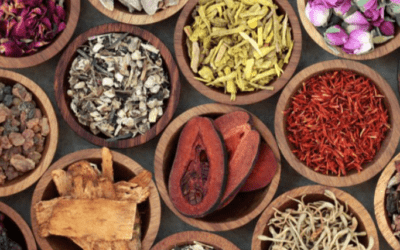
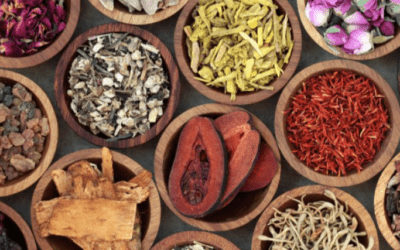
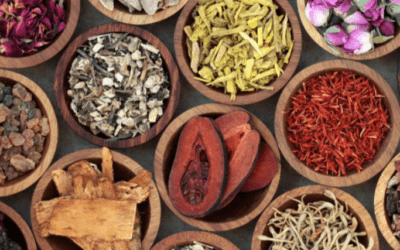

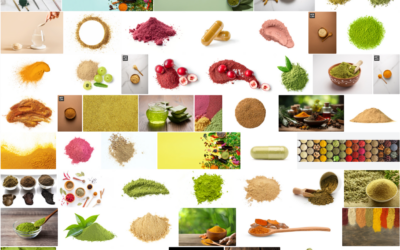



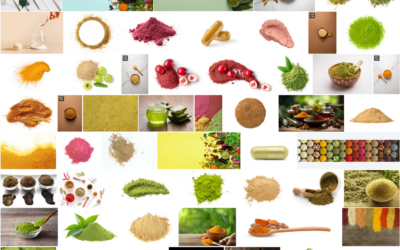

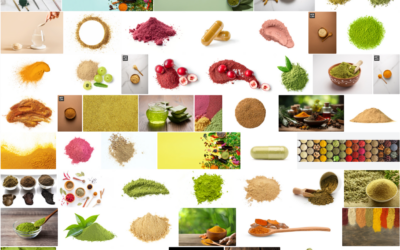
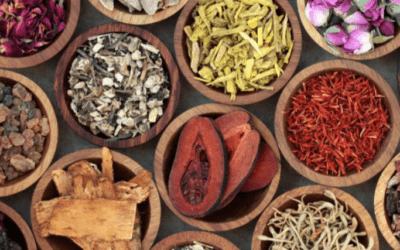
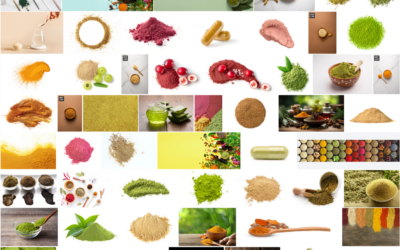

0 Comments